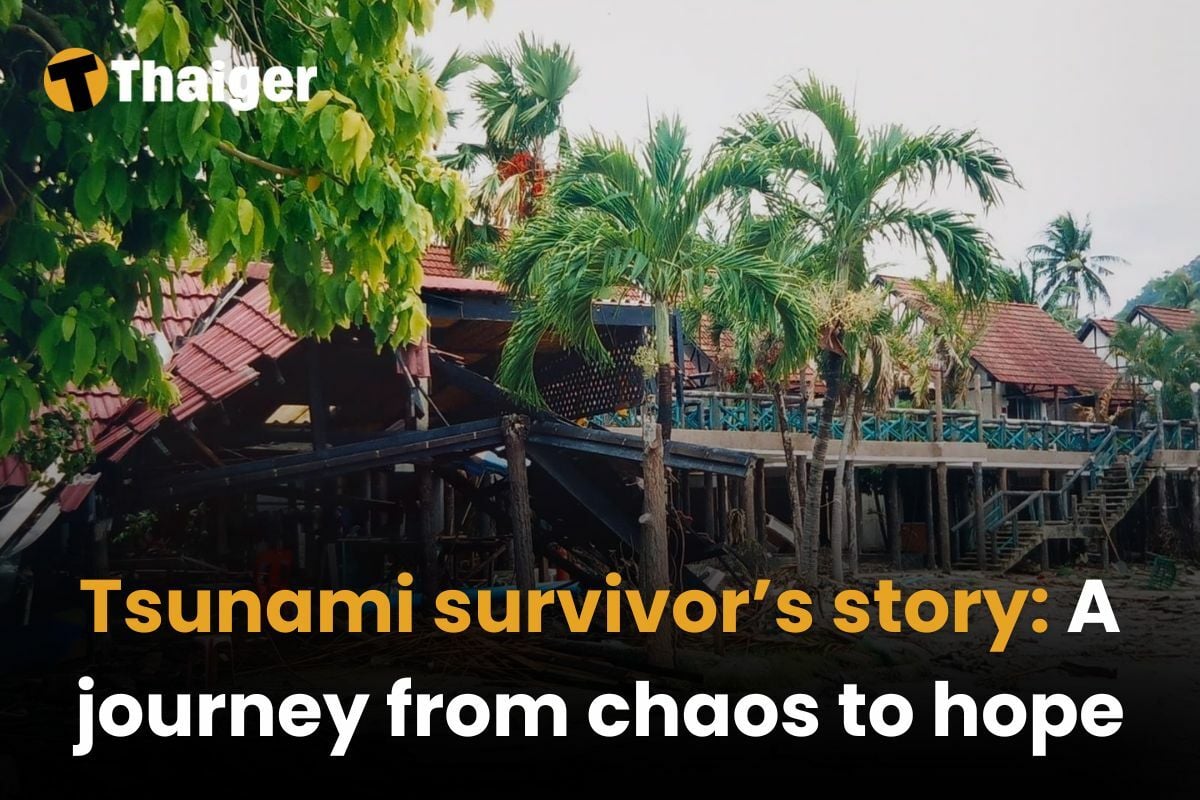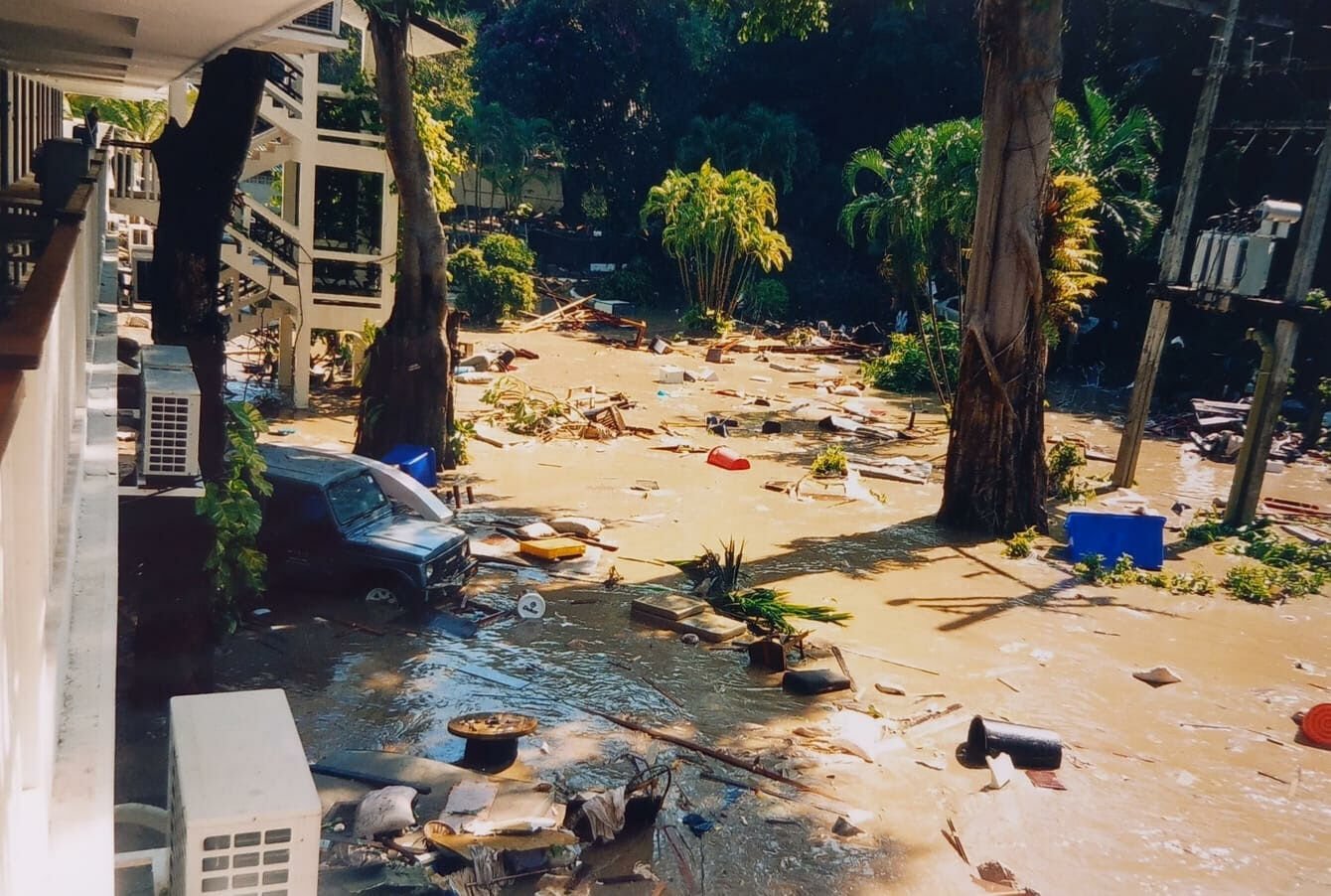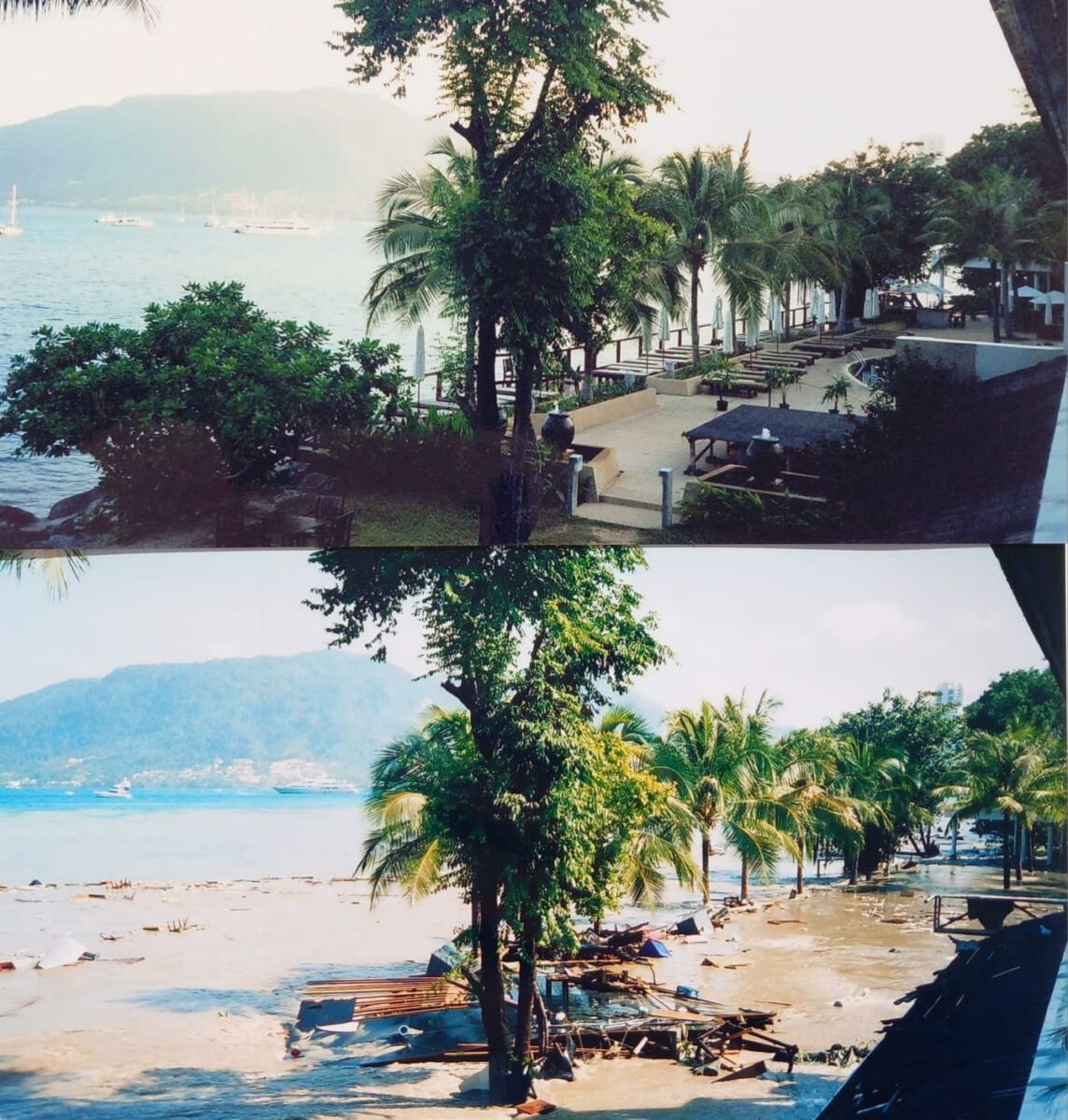Tsunami survivor’s story: A journey from chaos to hope

The Indian Ocean tsunami touched countless lives, claiming more than 230,000 people across 14 countries. In Thailand alone, over 8,000 perished.
What would you do in such a situation? How would you react if you found yourself in the “warzone” of your life, with only seconds to act? These are the questions the tsunami compels us to confront. The answers lie in the harrowing yet inspiring stories of those who survived. This is Peter Jongmans story.
A perfect morning turns to chaos

On December 26, 2004, it was a picture-perfect morning in Phuket. The white sand beaches and the turquoise waters of the Andaman Sea seemed calm and inviting. Peter, a business executive from Bangkok, was vacationing at the Amari Hotel in Patong Beach. He spent the morning on his balcony, engrossed in a book. The beauty and tranquillity of the day made it hard to imagine the disaster unfolding beneath the ocean’s surface.
“I noticed the sea rising and thought it was just an unusually high tide. I didn’t think much of it and returned to reading.”
But the water rose again, this time higher, and the sounds of panicked hotel staff began to fill the air.
“I could hear screams, and they shouted at us to climb the hill behind the hotel. I didn’t see the wave at first but could hear it. There was this enormous roar – like nothing I’ve ever heard before.”
Peter still doesn’t know where he found the strength to scale the steep hill behind the hotel. His legs burned, his chest heaved, and his heart pounded with fear, but the instinct to survive overpowered everything. Around him, other guests clawed their way upward, their faces pale with terror. It was a frantic climb for survival, driven by sheer will and the hope of escaping the unthinkable. When he finally reached the top, he summoned the courage to look back. What met his eyes was beyond comprehension.
“The wave was enormous. It came over and through the hotel, and in minutes, the building was just a shell of its former self. Everything was gone. It felt like I was in a movie – completely unreal”
Surviving the aftermath
For Peter and the other survivors, the following hours were a mix of chaos and shock. With phone lines down initially, no one fully understood the scale of the disaster. The hotel staff improvised, setting up a makeshift hospital to care for the injured.
“The staff were incredible; they kept calm and did everything they could to help.”
Still, the tragedy was impossible to ignore. Three lives were lost at the hotel, two guests who couldn’t escape their rooms, and a staff member who drowned while trying to rescue someone.
“Everyone was heartbroken. But there was also this strange sense of calm. People helped each other; we just did what we could to get through the day.”
That night, the survivors slept on mattresses outside, afraid another wave might come. The following morning, Peter made the difficult decision to leave Phuket.
A warzone on the beach

“The drive to the airport was surreal. Patong Beach looked like a war zone. Buses were overturned, there were dead bodies on the beach, and injured people were wandering about, searching for help and loved ones. Others were sitting amidst the chaos. It was unlike anything I had ever seen before.”
Peter explained that the tsunami struck only the Andaman Sea coastline of Thailand, devastating Phuket’s western shores. The eastern side of the island, facing the Gulf of Thailand, remained completely untouched.
“Once we got farther from the beach, it was as if nothing had happened. People were going about their daily lives. It was hard to wrap my mind around it.”
When he returned to Bangkok, the full weight of the tragedy hit him.
“I finally allowed myself to cry. I couldn’t stop thinking about how close I came to not making it. So many didn’t.”
But instead of letting grief consume him, Peter channelled his energy into helping others.
Turning grief into purpose
In the days following the tsunami, Peter volunteered at the Dutch Embassy, answering calls from families searching for missing loved ones. He and his friends also organised a benefit at the Sheraton Sukhumvit Hotel in Bangkok, raising $80,000 for tsunami relief efforts.
“It gave me a sense of purpose and helped me begin to heal.”
The tsunami didn’t just change Peter’s life, it transformed his outlook.
“After surviving something like that, you start to think differently about your priorities. I left the corporate world and began focusing on work that made a difference—volunteering for cultural and social organizations. Eventually, I reinvented myself completely, moving to Spain and becoming a full-time author. Life is precious, and I’ve tried to live with that awareness every day since.”
Returning to Phuket: Honouring the past
Two decades later, Peter has returned to Phuket to attend the remembrance events planned across the Island, and to reflect on the tragedy that changed his life forever. “We can’t forget the victims or the people who risked their lives to save others. This tragedy shaped so many lives, and the lessons it taught us about resilience, kindness, and community are just as important now as they were then.”
For survivors like Peter, and for the families who lost loved ones, remembrance is a way to honour those who were lost and to ensure that the magnitude of the disaster is never forgotten.
As we talked, he shared a memory from the benefit he organised in Bangkok after the disaster. The Louis Armstrong classic What a Wonderful World played during the event, a reminder of the beauty and fragility of life. Even as he spoke, Peter’s voice cracked with emotion
“That song still means so much to me. It’s a reminder that, even after something so devastating, there is still so much good in the world.”
A message of hope
Twenty years after the tsunami, Peter’s story reminds us not only of the destruction left in its wake but of the extraordinary resilience of the human spirit.
His message to the world is profoundly inspiring:
“In every situation, no matter how dark, there is always hope. Life is beautiful and worth living—cherish it, and don’t take it for granted.”
Latest Thailand News
Follow The Thaiger on Google News:


























